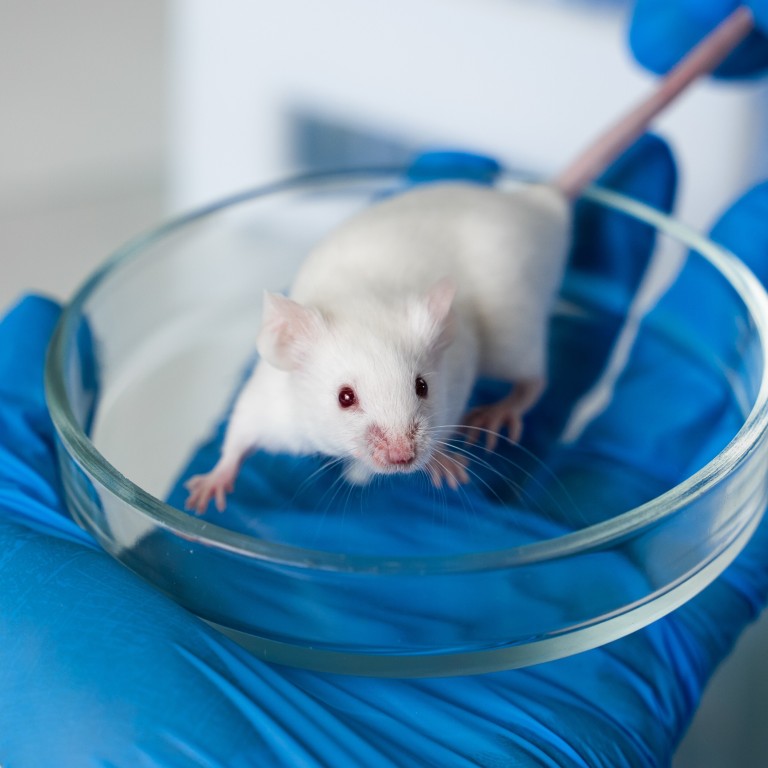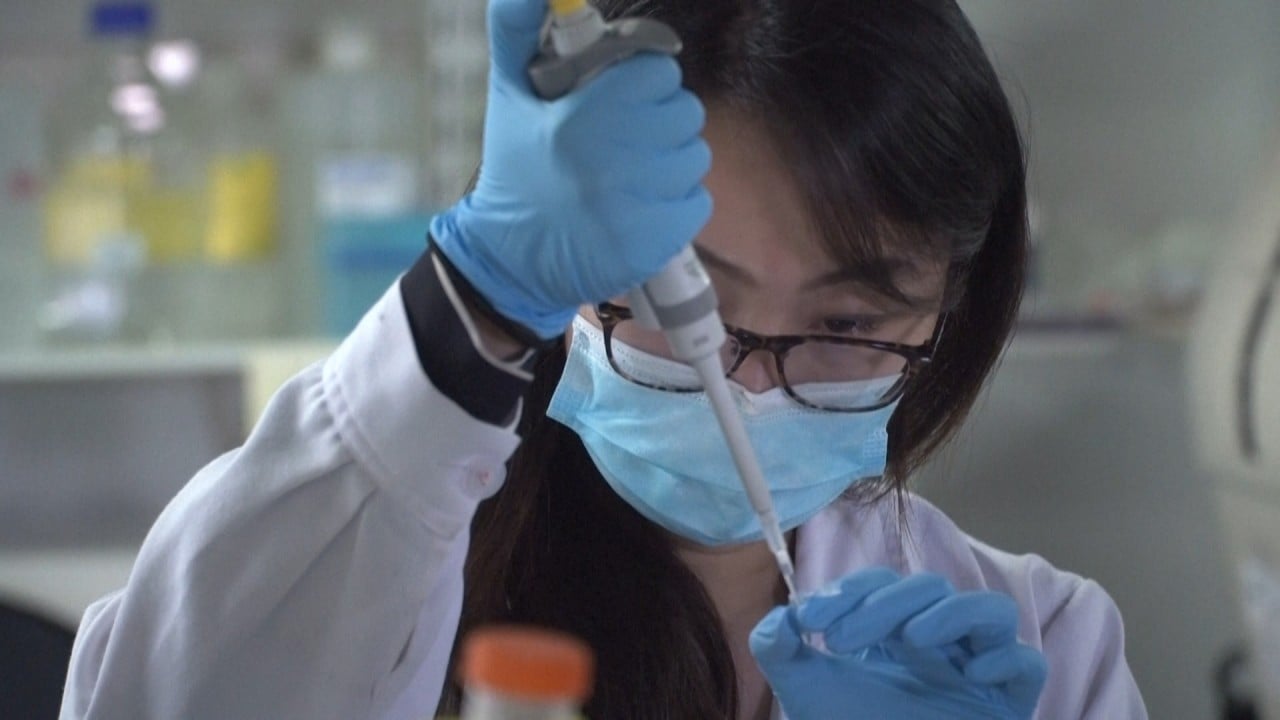
‘Strong immune response’: Chinese Covid-19 vaccine team reports promising results
- Single dose of candidate medication yields antibodies in mice, researchers say
- Developers looking to partner with pharmaceutical company after a few more months of study
Researchers from Shanghai’s Fudan and Jiao Tong universities developed the candidate on the platform of messenger ribonucleic acid, or mRNA, which tells cells how to make proteins.
Scientists say that protein structures called spikes on the surface of the coronavirus allow the pathogen to bind to and invade human cells.
An mRNA vaccine is designed to mock an attack by these protein spikes and trigger an immune response to any future invaders carrying the same spikes.
In a study published on the preprint server bioRxiv on May 15, the researchers said they injected a single dose of the vaccine candidate, called ShaCoVacc, into mice and in two weeks observed a significant presence of the spike-specific antibody.
Two or three doses of inactivated vaccines were required to get a similar response in other studies.
“These results support further development of ShaCoVacc as a candidate vaccine for Covid-19,” the researchers wrote, referring to the name of the disease caused by the coronavirus.
“Our study provided a new vaccine platform simulating coronavirus surface protein and internal nucleic acids, therefore, combining features of inactivated vaccines and mRNA vaccines.”

02:10
Scientists in China claim a new drug could stop Covid-19 without a vaccine
The trial did not find any weight loss caused by ShaCoVacc during the vaccination, suggesting no evident toxicity, they added.
Cai Yujia, a researcher at Shanghai Centre for Systems Biomedicine, Shanghai Jiao Tong University, who co-authored the paper, said if they found a partner to develop a vaccine the team would need three or four more months of pre-clinical study before human trials.
“This is academic research and we are in contact with some pharmaceutical companies on the possibility of developing a vaccine,” Cai said.

01:54
Coronavirus: Ousted US vaccine director warns US lacks 'master plan' to fight virus
Laboratories around the world are in a race against time to develop a vaccine for the coronavirus, which has infected more than five million people, killing nearly 330,000.
Epidemiologist Maria Van Kerkhove, head of emerging diseases at the World Health Organisation, said on Wednesday that the WHO had mapped more than 120 vaccine candidates, some of them in clinical evaluation.
Four other inactivated vaccines developed by Chinese institutions and companies are also undergoing human trials.

